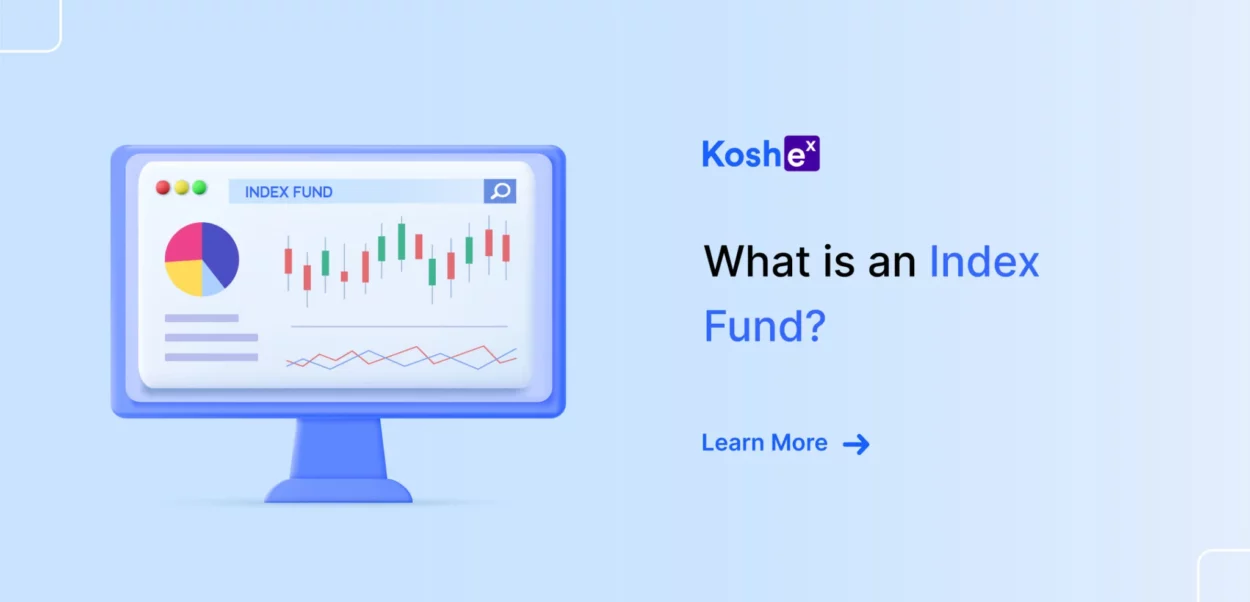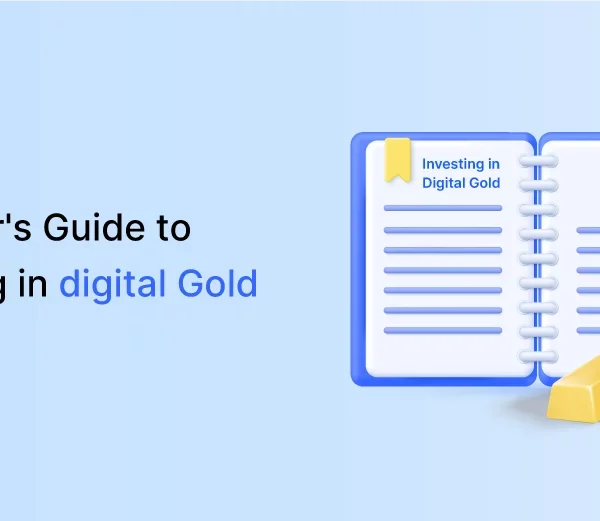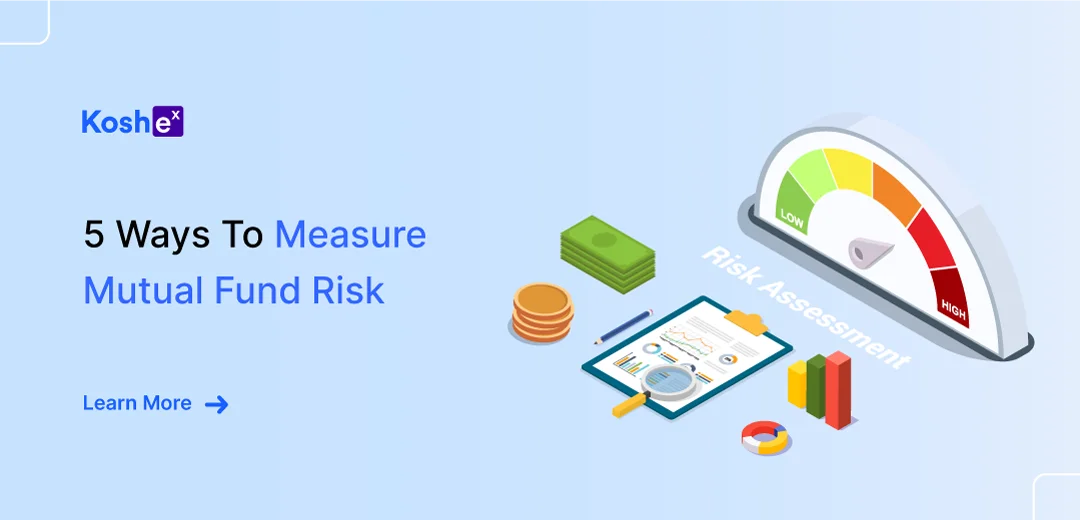Why invest in index funds
We all try to diversify our portfolios among different asset classes. Some of the popular asset groups include equities, bonds, commodities, real estate, gold, etc.
We also try to invest in different securities and industry groups to help reduce portfolio risk while increasing return.
One way to diversify portfolios and reduce costs is to invest in index funds. This article touches upon what index funds are, how they work and their features and benefits.
What is an Index Fund?
Index Fund is a mutual fund that tracks the performance of a market index. Some of the indices in the Indian market include BSE Sensex 30, NSE Nifty 50, NSE Midcap 100, etc.
Fund managers passively track the index through the fund. They invest in stocks in the same proportion as the index. There are no active fund management inputs from the fund manager.
The stocks or bonds or the underlying securities selected by the fund manager imitate the performance of the underlying index. As they follow a passive investment strategy, they have a lower expense ratio.
They are based on the principle that in the long run, the underlying indices of investments will outperform the performance of the actively managed funds.
Key Features of an Index Fund:
- Passive tracking of the market index is the main feature of index funds. There are no active management inputs.
- As there are no active management inputs, index funds have low expense ratios.
- Index funds may also be listed on stock exchanges and are known as Exchange Traded Funds.
- They invest in a widely diversified portfolio of underlying securities.
- Index funds are ideal for passive investors who buy and hold securities for long periods.
- They rely on the fundamental principle that market indices outperform all active management investment strategies in the long run.
- Taxation: Index funds are subject to dividend distribution tax and capital gains tax. As per the Indian Income-tax Act of 1961, dividends are subject to tax at 20% p.a. Capital Gains tax is assessed as per the tax slab of the assessee.
Advantages and Disadvantages of Index funds
Advantages
- Diversification potential: Index fund holdings are widely diversified and offer maximum diversification potential. For instance, the Sensex 30 Index has diversified over 30 stocks, and the Nifty 50 is diversified over 50 stocks. Nifty 100 has over 100 stocks, and the Nifty 500 is diversified over a universe of 500 stocks. This diversification is also achieved without active fund management inputs. While constructing the indices themselves, the stock exchanges also take great care in filtering and selecting the underlying investments from different industry segments. The market capitalisation of the underlying securities mimics the performance of the stock index itself.
- Low expense ratios: As the fund manager only mimics the index that the fund is tracking, there are no asset management expenses. The only expenses may be transaction fees linked to changing the investment composition due to the rebalancing of the index. This ensures low expense ratios and helps increase net investment.
- Long-term growth potential: The return potential is maximised in the long run when you invest in index funds.
- Low risk: The diversification among different stocks ensures that the risk potential of index funds is low. This is not to say that index funds are devoid of risk. They are exposed to market risk in the case of equity index funds and interest rate risk and credit risk in the case of debt index funds. But diversification ensures that these risks are minimised.
Disadvantages
- Less flexibility during times of market corrections: During times of prolonged market corrections, the index fund manager cannot change the asset allocation to reduce the funds’ exposure to stocks but has to continue to track the performance of the index. This increases the vulnerability of the index funds.
- Not for the short term: If you are looking to make quick returns from investing only for the short term, index funds are not the correct investment. Index funds provide the maximum return only in the long run. The index fund manager does not try to beat the market.
- Tracking error: When index fund managers invest in the underlying securities of the funds, they may not be able to replicate the index composition exactly. Such differences in portfolio composition are known as tracking errors. This may result in a differential performance of the fund. Stock markets are unpredictable and with inherent risks. Any tracking error only increases the risk factor of the index fund.
Factors to Consider While Investing in Index Funds
It would help to consider the following factors while investing in index funds:
- The underlying index that the fund replicates: You must choose the type of index fund to invest in, depending on your risk-return profile. If you have a more aggressive risk orientation, an equity index fund would be appropriate. If you have a more conservative risk profile, choose a debt index fund or a combination of equity and debt index funds. In general, large-cap index funds normally outperform the performance of actively managed large-cap funds.
- The assets under management of the fund house: Consider the total assets under management of the fund house and be mindful of the fund house’s reputation and track record.
- The performance of the index fund: It is good to consider the past performance of the index fund and determine whether there is any tracking error with the index that it simulates
- Expense ratio: Ensure the expense ratio of the fund is low.
The following index funds are deemed to be some of the better-performing index funds:
- UTI Nifty Next 50 Index Fund: This is launched by the UTI Mutual Fund.
- Asia Nifty Next 50 Index Fund: This is managed by Axis Mutual Fund
- Motilal Oswal S&P BSE Low Volatility Index Fund Direct-Growth: This is managed by Motilal Oswal Mutual Fund
- Nippon India Nifty Smallcap 250 Index Fund – Direct-Growth: This is managed by Nippon India Mutual Fund. This fund seeks to invest in small-cap equities.
- IDFC 2028 Gilt Index Fund-Direct Growth: This is managed by IDFC Mutual Fund investing in government securities.
The index funds mentioned above are for reference; please conduct thorough research before investing.
Conclusion
Index funds provide opportunities to invest to both risk-averse and moderately aggressive investors. Both these investor classes can benefit by increasing their long-term returns while reducing their expense ratios.
you can invest in Index funds through both online broker platforms and offline modes.
Index funds offer a low-risk investment alternative to actively managed funds or directly buying stocks. As mentioned before, these are passively managed funds with a low expense ratio that can be used for long-term wealth creation.
Thoroughly research your options before investing. You can register on Koshex to learn more about Index Funds.
FAQs
Q. Can you still lose money investing in an index fund?
A. Index funds are not immune to market risk or interest rate and credit risk as the case may be. However, diversification of the underlying investments helps reduce overall risk potential.
Q. What are the different types of underlying investments of an index fund?
A. The underlying investments of the index that index funds track can be equities, debt, commodities, money market instruments, etc.









Leave a Comment